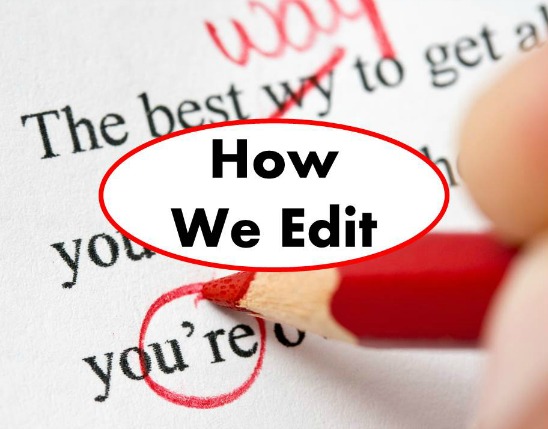A favorite pastime of many editors is griping about MS Word. On any given day, you can pop into an editing forum and see frustrations and complaints about Word. Yet, as a group, we also strongly resist editing in anything but Word.
For all its flaws, Word gives us a lot of tools for working more efficiently and increasing consistency. And there are a number of software addons, like PerfectIt and the Editor’s ToolKit Plus, that increase the quality of our work. Editors even strongly resist the not-quite-the-same, but free Google Docs, even while they resist paying to upgrade to the latest and most compatible version of Word.
Yet software is changing. Self-publishing authors have already been using alternatives to Word. The popular Scrivener is cheaper than Word (never mind the whole Office suite) and has features especially for book authors. Now we’re seeing just how many companies are abandoning Office, too.
Corporate Work Is Changing
A recent Fast Company article discusses the variety of software for document editing now available, outlining just how much corporate workflows are changing.
“It isn’t about organization and making folders and hierarchies,” Kevin Gibbs, cofounder and current CEO of Word-alternative Quip, told Fast Company. “It’s really a web of interconnected documents where you find and reference things.”
Programs like Quip, Notion, and Coda combine project management with content creation and sometimes even publishing (Coda lets you create public web pages). They also let you integrate other common business apps, like Dropbox, Trello, Shopify, GitHub, and Slack, helping connect different teams within a company and connect freelancers with staffers.
“You’ve got this perfect merger of synchronous and asynchronous collaboration on the same asset, and so it’s fundamentally changing how we’re working,” said Aaron Levie, the CEO of Box.
The bottom line is that companies are going to use the tools that meet their needs as cost effectively and with as little setup and training as possible. And if they’re rethinking how to organize the workflow or building a team of on-site staff, remote staff, and freelancers, they might not want to be confined to Office. Replacing two or three programs with one that everyone can access everywhere? That’s a huge win.
Should Editors Change Too?
As an editor, you may never have a client who wants you to work in something other than Word. To that I say, lucky you! As frustrating as Word is, it’s still the best tool for editing. Apart from short documents in Google Docs, I usually import manuscripts into Word for editing. (I also download Word files to work on my hard drive rather than in the cloud for similar reasons.)
As time goes on, employers and clients are less likely to be working in Word. My kids, ages 18 and 20, refuse to use Office and don’t have it installed on any of their devices. My 20-year-old is a professional writer, and he uses Google Docs for writing and Notion for project management—both on his iPad. He and his contemporaries have grown up with Google products used on tablet computers. It’s what they know best.
Get writing advice straight in your inbox.
Sign up for Right Touch Editing’s emails!
One of my client uses Quip for content creation and management. I know I’m not the only freelancer writer who writes in Word and then copies the text into Quip. My client doesn’t mind, but I do need to address any hiccups that might cause. Links, for example, don’t paste cleanly. So I need to spend an extra couple of minutes ensuring my links carried over correctly to Quip. It’s a cost of maintaining a preference that doesn’t align with the client’s.
Extra steps aside, I don’t see new software options as good or bad, just different. How we think and organize is changing, not the least of which is because of how we use technology. I’ve seen editors who didn’t want to adapt, whether it was to on-screen editing or the latest version of Word, lose out on work. Most editors recognize the need to keep up with language changes to remain relevant, in-demand editors. It’s the same for technology.
I don’t foresee book publishers and others with entrenched publishing processes moving away from MS Office anytime soon. How they organize their work is unlikely to change tremendously in my lifetime. I’m not so sure about my kids’ lifetime.
But other producers of writing that needs editing? How they do the work is changing. Who they work with is changing. So too are the tools they use.
Monitor and Adapt as Needed
Look around you. Monitor the publishing processes you work in. Ask yourself if you dig your heels in too deeply on software requirements, will you lose out on work? It doesn’t have to mean never using Word again. Like I said, I import text into Word because I’d rather work there. But I do the work to make my system work with the client’s. My job is to make the client’s job easier.
If you make it hard to work with you, clients will stop working with you. I’ve seen it happen.
To remain in demand, at least understand the new ways our clients and employers might be working. Then find a way to adapt.


